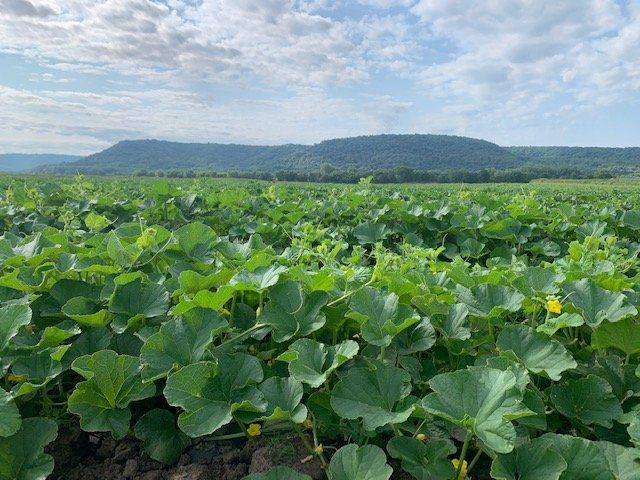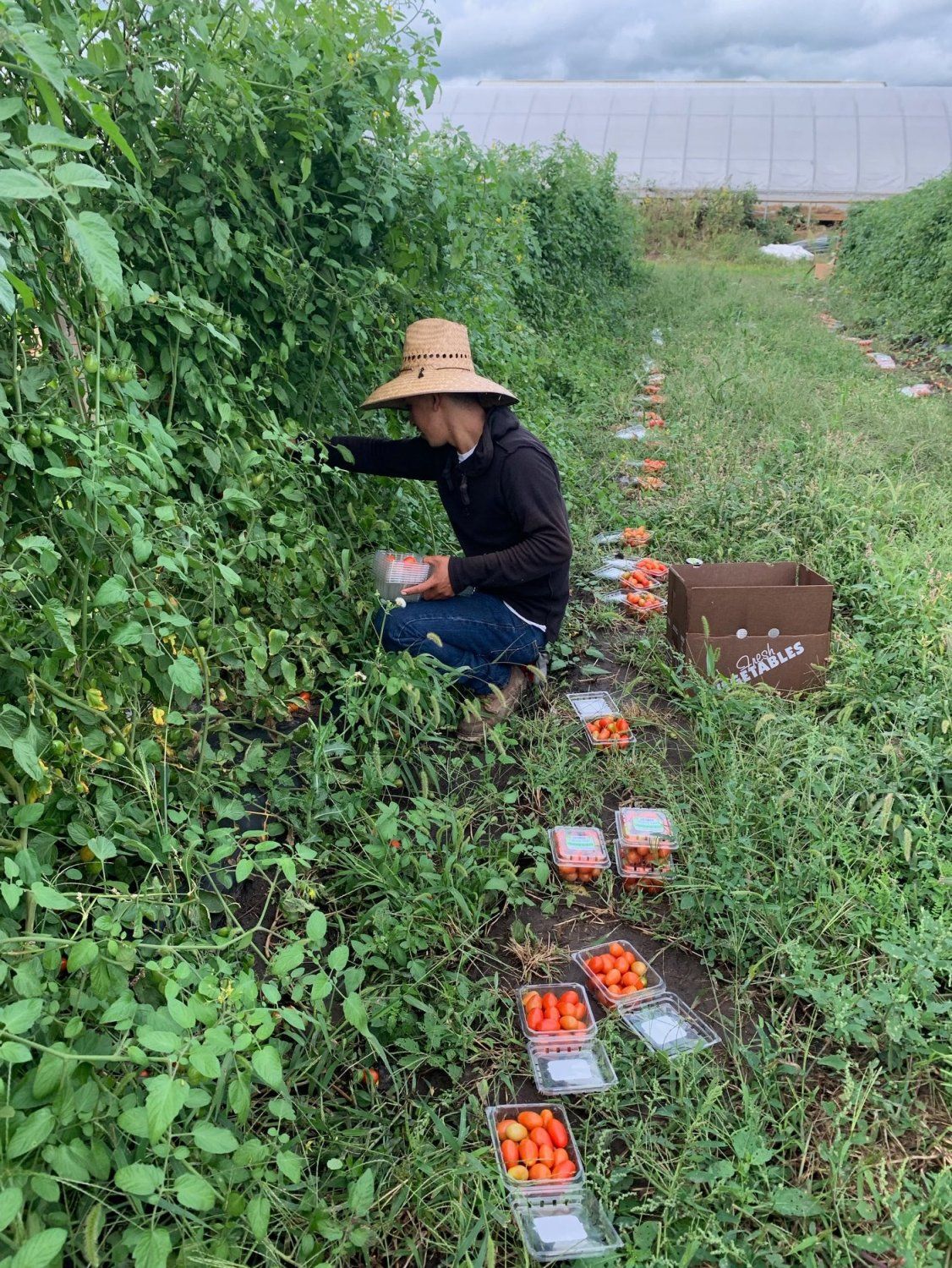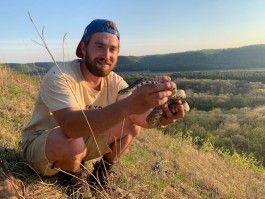As us Featherstonians pack your sixth CSA box of the season we are in the midst of midsummer’s abundance. From where I write this newsletter on the porch of the Granery on the Ridge at the Peterson parcel of Featherstone, I overlook a field of pie pumpkin and acorn squash that, I think if sat here long enough, I could literally watch grow. The glowing evening sun, filtered through the haze of Western and Canadian wildfires, is beautifully highlighting future harvests of cabbage, chard, parsley and the aforementioned winter squashes.

a view of the Peterson Farm (Featherstone owns it) on the Ridge
The exceptionally hot and dry growing season thus far-and for the foreseeable future-has been phenomenal for our warm season crops. The cucurbits (cantaloupe, watermelon, cucumber, zucchini, and winter squash), and the nightshades (tomatoes, potatoes, eggplant, bell peppers, chiles), and of course sweet corn, are all looking stellar! Some successions of our brassica crops (notably broccoli, kale and cabbage) may have suffered a bit, especially in a handful of unirrigated fields on the Ridge, but overall 2021 is shaping up to be another red-letter year for Featherstone. There’s good reason why almost 100% of the domestic produce you’ll encounter in a typical supermarket is either grown in the Central Valley of California or east of the Cascades in Oregon or Washington. The hot and dry climate, combined with irrigation, create an environment ideal for the production of super-market quality vegetables. We experienced a nearly “Central Valley Style Summer” last year, resulting in bumper fruit and vegetable crops. This year is shaping up to produce similar, possibly superior, yields. Yet, in the back of my mind, I can’t help but think what successive years of drought, or the opposite, excessive rainfall, may mean for farmers such as ourselves or the folks around us that grow conventional commodity crops or livestock. I don’t think I am a “doom and gloom” sort of environmentalist but I would be remiss if I didn’t note the unusual weather patterns here in the Upper Midwest and lack of pollinating insects. Are these phenomena related to humanity’s use of fossil fuels and liberal use of potent chemicals to control weeds and insects in an agricultural setting? Likely so. But that is why you, a reader of this newsletter and subscriber to our CSA share are concerned about these disturbing trends and are supporting more sustainable means of food production. We strive to grow our crops for you, our CSA members, and for our wholesale accounts in a manner that is as environmentally and socially responsible as possible. Every season we continue to improve our land management practices and lessen our environmental impact by experimenting with better cover-cropping practices, reducing our use of petrochemicals, and trialing new varieties of crops that are more productive and resistant to disease. These are some of the steps that must be taken in order to maintain agricultural productivity in light of changing environmental constraints.
2021 is my first year as a crop manager here at Featherstone. I am fortunate to make management recommendations of our cucurbit crops, as well as the lettuce, chard, beets, basil, and strawberries under the experienced and watchful eyes of the Field Production Manager, Abby Benson, and owner of FFV, Jack Hedin. The last several months have been quite a learning experience as we have seeded, transplanted, cultivated, and monitored these crops. There have already been significant setbacks. A couple examples that come to mind are a 5 acre planting of winter squash that succumbed to wind and two days of unseasonably cold weather in late May that had to be completely replanted and the early and abnormally high pressure on cucurbit crops from cucumber beetles that required immediate attention.

The winter squash field, looking great, that we had to replant by hand after the May cold snap.
But thus is the life of a farmer. Nothing is normal and nothing is taken for granted. Unanticipated and changing conditions are the name of the game.
As I wrap up writing this newsletter the sun is setting across the crops here on the Ridge and the lightning bugs are gracing the fields with their magical luminous displays. Despite the challenges of farming, here at Featherstone I am constantly reminded of how lucky I am to be living this lifestyle and growing wholesome organic produce for our customers. I hope this week’s box of produce nourishes you and your loved ones as much as the production of it nourished the minds and bodies of us here at Featherstone.
Gratefully,
Liam Bonk
Crop Manager




